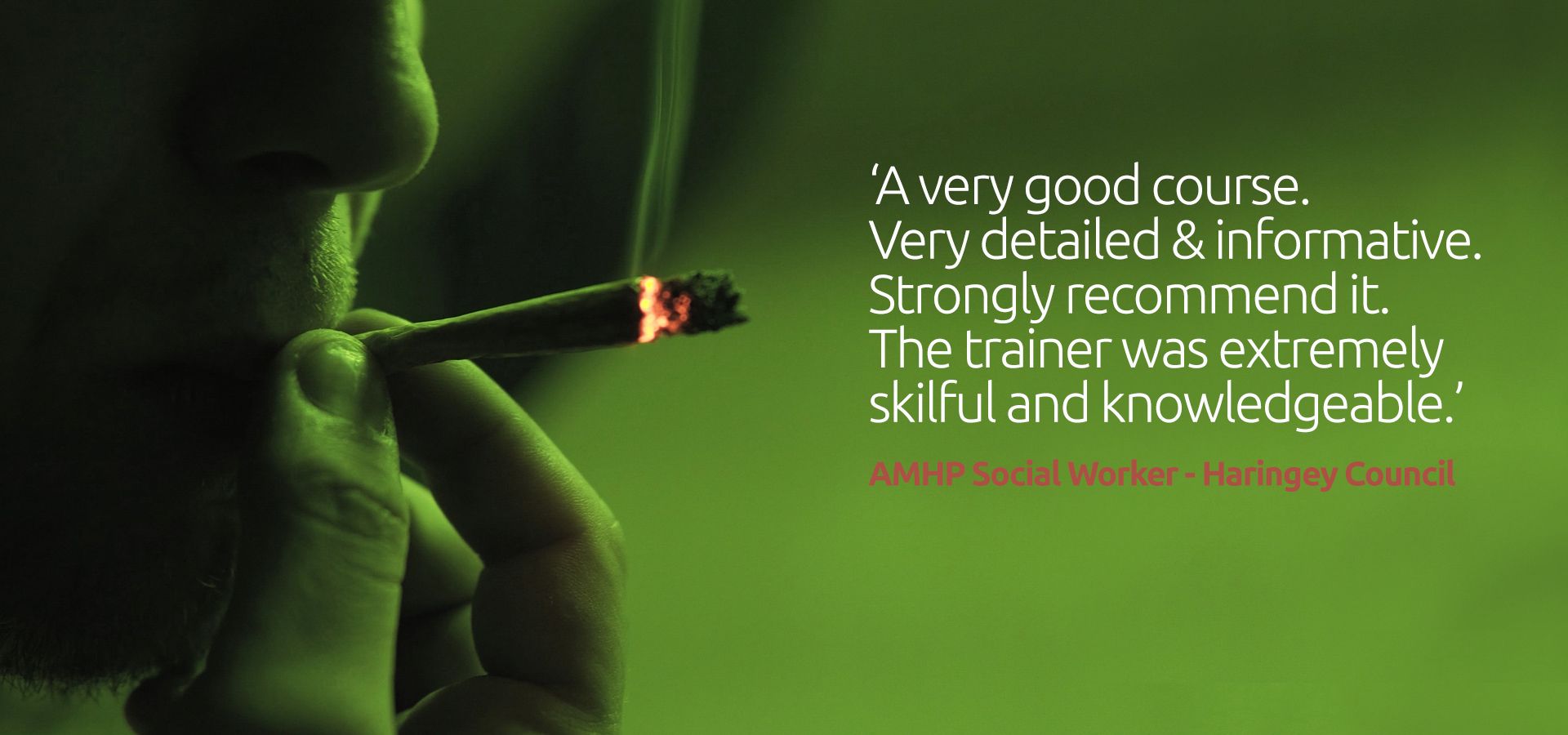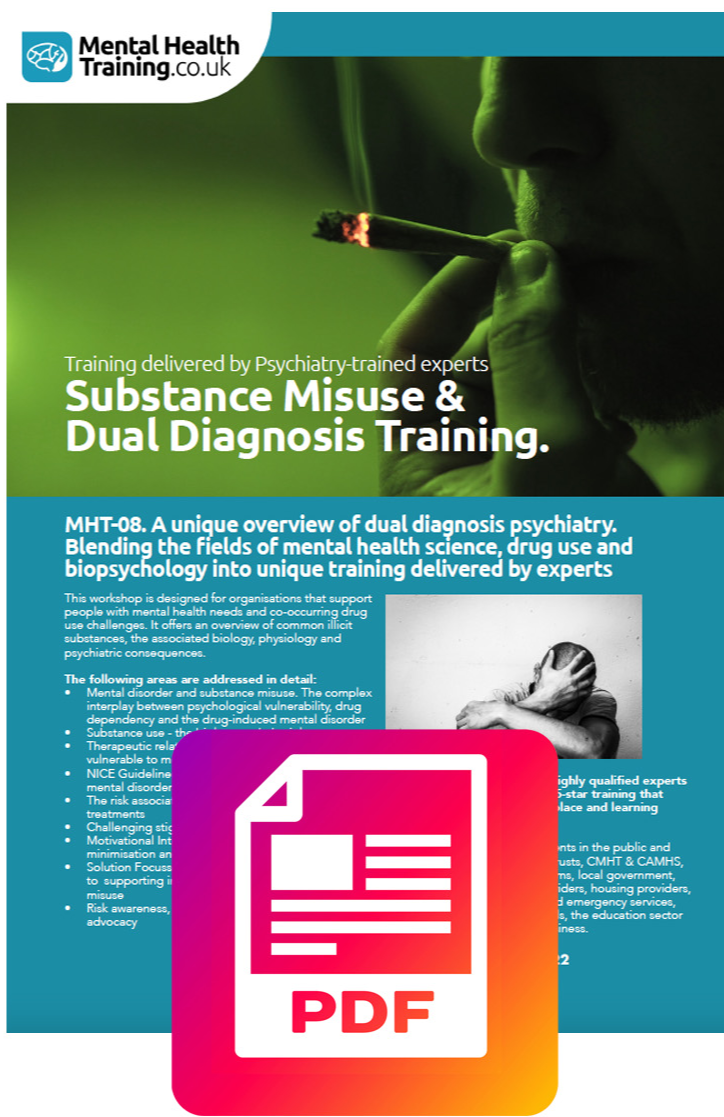MHT08 – Substance Misuse / Dual Diagnosis Training
This workshop is designed for organisations that support people with mental health needs and co-occurring drug use challenges. It offers an overview of common illicit substances, the associated biology, physiology and psychiatric consequences.
- The following areas are addressed in detail:
- Mental health diagnosis and common vulnerabilities
- Substance use – the biology and physiology
- The complex interplay between drug use and mental disorder (the chicken and the egg)?
- NICE Guidelines relevant to dual diagnosis and mental disorder
- The risk associated with drug use and pharmaceutical treatments
- Challenging stigma and improved signposting
- Motivational Interviewing strategies – for harm minimisation and healthy change
The UK’s leading providers of mental health training & consultancy. An authority you can trust.
The workshop offers an overview of psychoactive substances and the physiological impact of drug taking / pharmacy on the body and mind. It’s a Dual Diagnosis training event that considers substance misuse and general psychiatry from an integrated perspective. We offer bespoke designed content to meet a range of learning needs, so please consult with us if you have a particular learning objective.
Here’s an example overview of a typical training workshop (10 bullet points):
1 – Illicit drugs that commonly used in the UK. Their classifications, effects on the central nervous system and the associated organic and psychological / psychiatric harms
2 – The brain on drugs, the psychobiology of addiction and psychological factors that increase resistance to health-focussed advice and support
3 – An overview of mental disorder and the interplay between drug use and mental illness
4 – The risks associated with the co-ingestion of illicit substances and pharmaceuticals
5 – Prescription medication misuse and dependency. A classification of pharmaceuticals, their effects and abuse potential and the risk factors of congesting pharmaceuticals and illicit substances
6 – A key focus on illicit substances and alcohol dependency and the relationship with mental disorder, delirium and alcohol-related dementias / neuro-cognitive disorders
7 – Dual diagnosis factors with a key focus on NICE Guidelines and the obligations / responsibilities within the NHS to support individuals with co-occurring mental disorder and substance misuse / dependency
8 – Understanding the principles of motivational interviewing and developing strategies to better-support people with substance dependency and co-occurring mental disorder; 9 – Understanding and employing the harm minimisation model into counselling / support strategies
10 – Evidence-based training with access to a wide range of peer-reviewed articles associated with suicide science and access to free post-training support
This training is delivered by psychiatry-trained experts
We specialise in psychiatric illness and abnormal psychology, personality disorder and stress-related illness training, capacity law and mental health risk. We offer a wide-ranging, multi-disciplinary knowledge and skills with high quality, integrated evidence-based training that you can trust.


